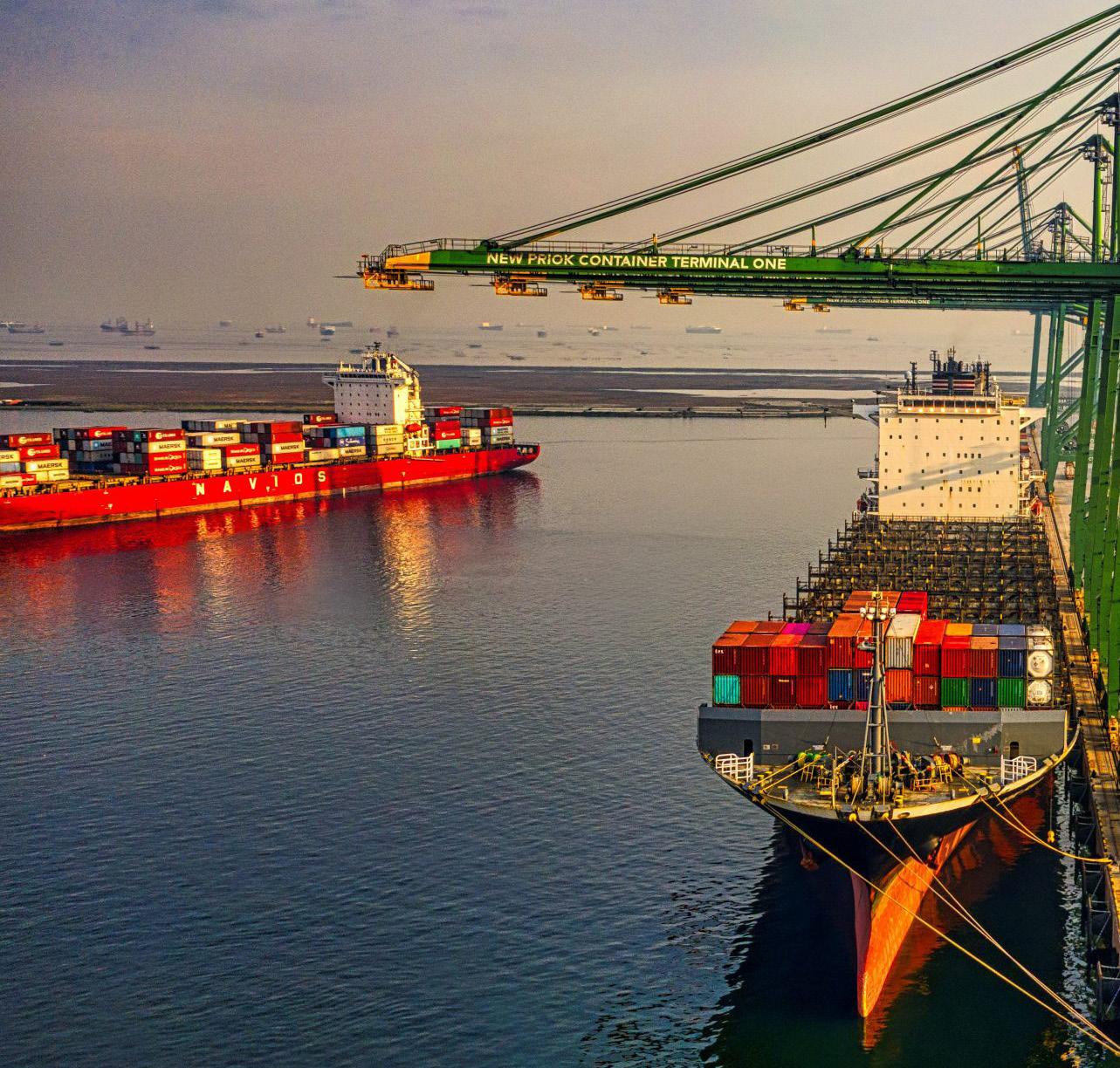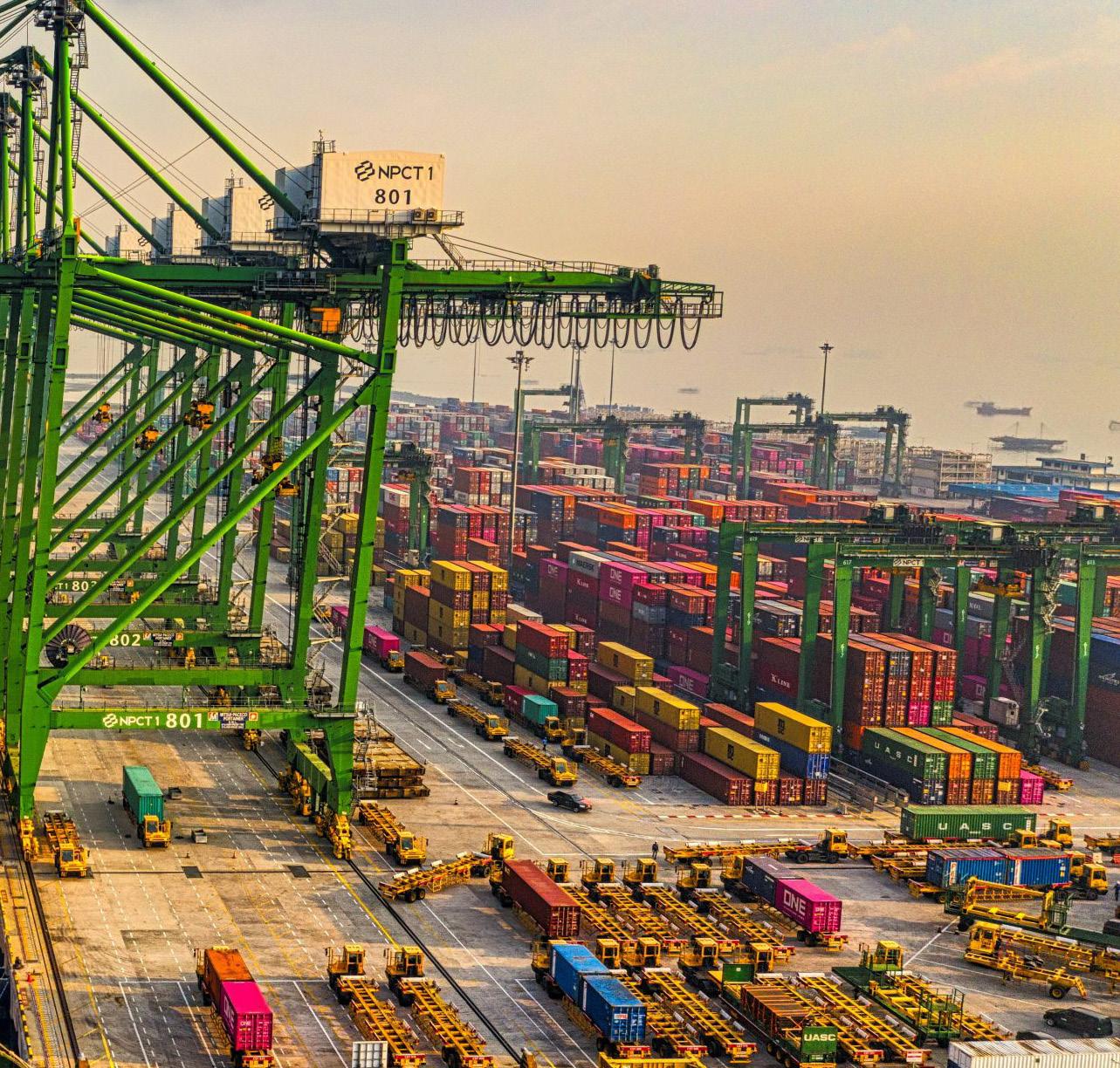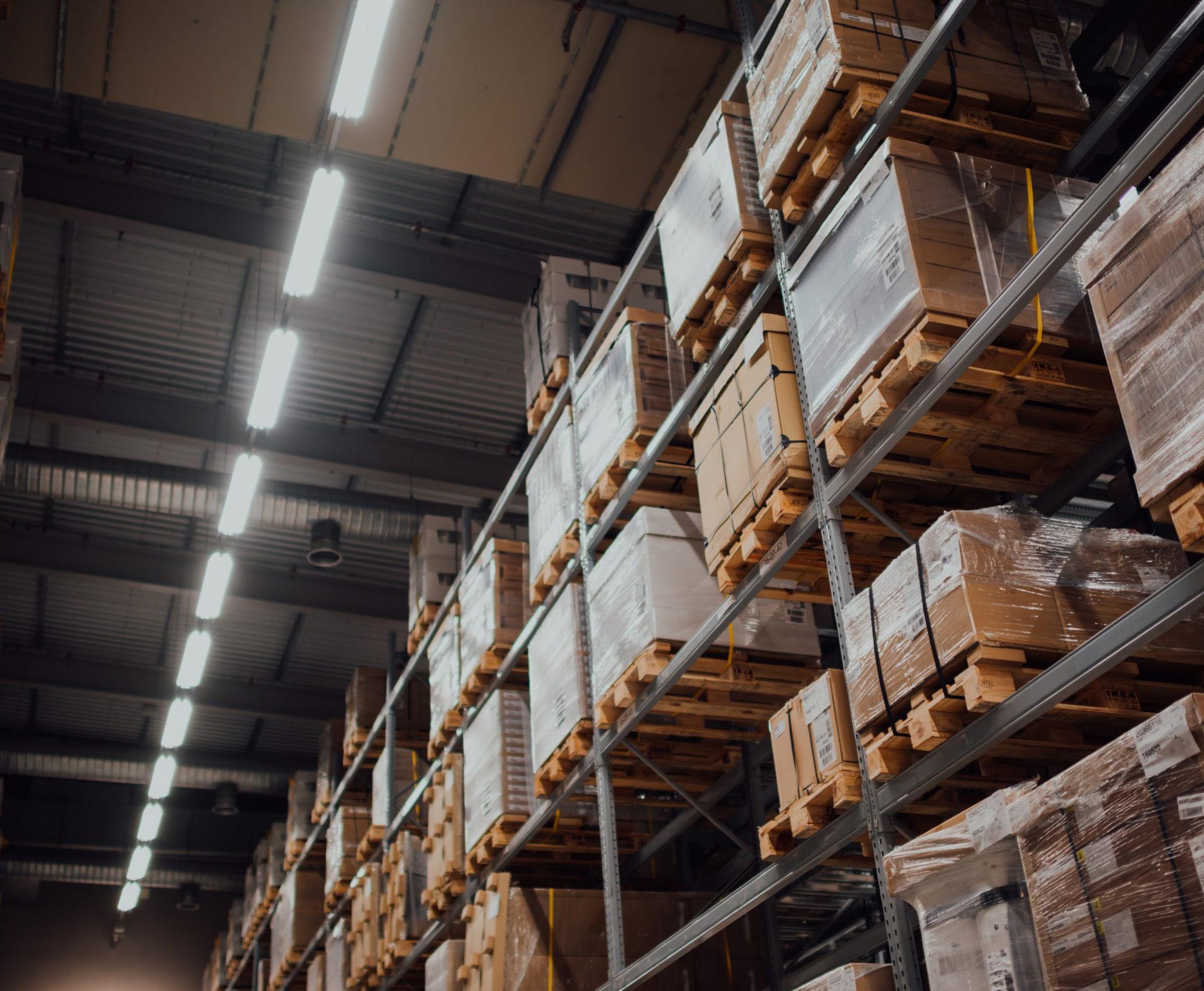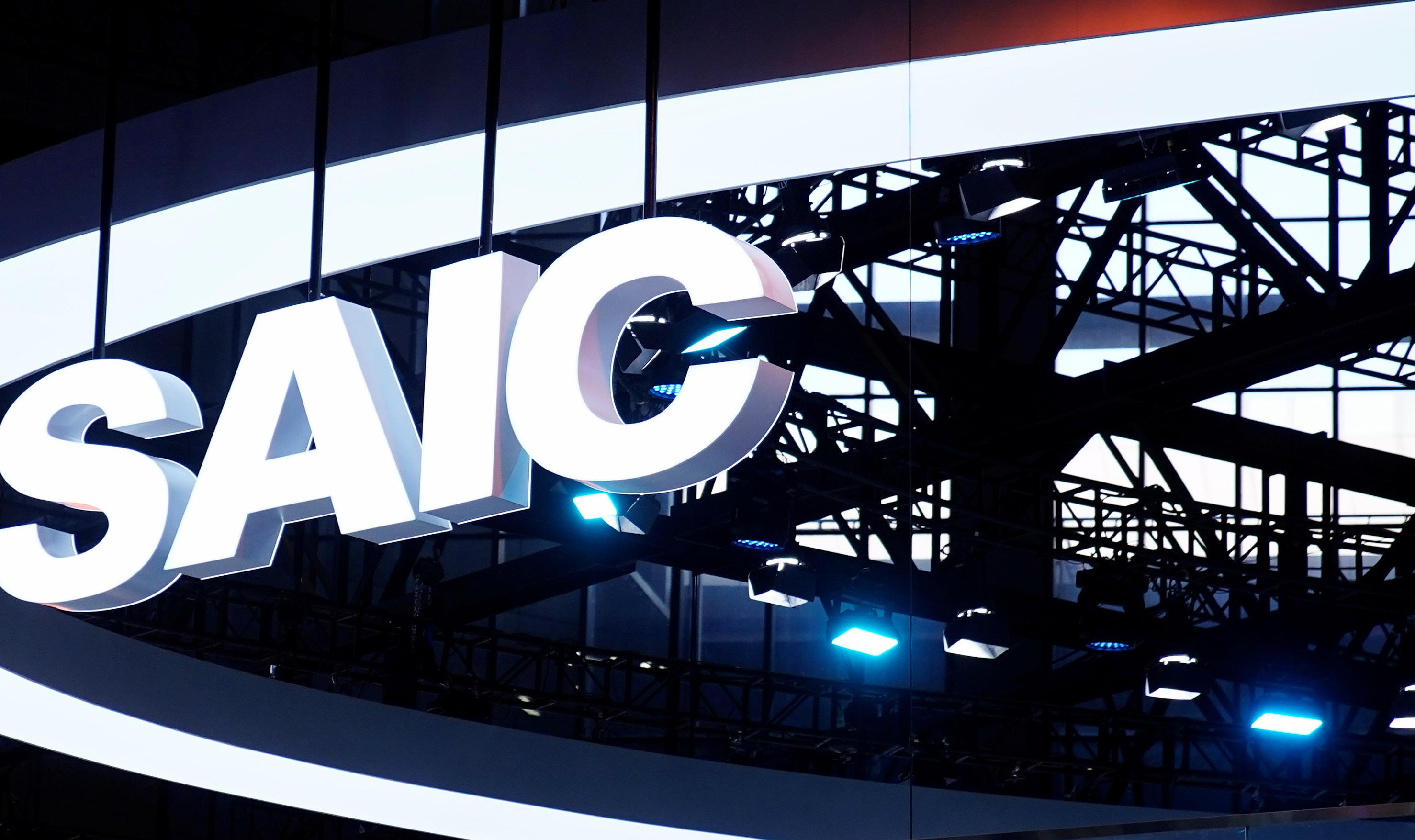
5 minute read
How Africa can become new global supply chain force
African economies can become major participants in global supply chains by harnessing their vast resources of materials needed by high-technology sectors and their own growing consumer markets, UNCTAD said in its Economic Development in Africa Report 2023 launched on 16 August in Nairobi.
Supply chains encompass the systems and resources needed to develop, produce and transport goods and services from suppliers to customers. “This is Africa’s moment to bolster its posi- tion in global supply chains as diversification efforts continue. It’s also an opportunity for the continent to strengthen its emerging industries, foster economic growth and create jobs for millions of its people,” UNCTAD Secretary-General Rebeca Grynspan said. Africa’s abundance of critical minerals and metals, including aluminum, cobalt, copper, lithium and manganese, vital components in technology-intensive industries, positions the continent as an attractive destination for manufacturing, as recent upheavals caused by trade turbulence, geopolitical events and economic uncertainty compel manufactur- ers to diversify their production locations.
Advertisement
Africa also offers advantages such as shorter and simpler access to primary inputs, a younger, technology-aware, and adaptable labour force and a burgeoning middle class, known for its growing demand for more sophisticated goods and services.
Strengthening African supply chains is key for the region’s growth the report highlights that creating an environment conducive to technology-inten- sive industries would help raise wages on the continent, currently set at a minimum of $220 per month, compared to an average of $668 in the Americas.Deeper integration into global supply chains would also diversify African economies, boosting their resilience to future shocks. Expanding energy supply chains into Africa is also an opportunity to accelerate climate action. The continent’s vast renewable energy potential, particularly in solar power, can help reduce production costs and decrease reliance on fossil fuel-based energy sources.

Africa needs more investment in renewable energy to help bridge the significant investment gap and tackle other obstacles to the manufacturing of solar panels on the continent. Currently, only about 2% of global investments in renewable energy go to Africa. The growth of investment in renewable energy, as shown by UNCTAD, could promote the manufacturing of solar panels on the continent.
As an example, in 2022, the Democratic Republic of the Congo was the largest producer of copper in Africa, at 1.8 million metric tons – and beyond exploration and extraction, the country is a potential destination for refining metal products for the electric vehicles industry.
Unlock Africa’s supply chain opportunities: Invest in infrastructure, technology and financing
Africa needs significant investment in infrastructure to bolster its position as a supply chain destination.
Seventeen African countries, including Angola, Botswana, Ghana and South Africa, have already implemented local content regulations to support the growth of local supply chains, foster technology transfer, create jobs and add value within their borders. Additionally, African countries should also secure better mining contracts and exploration licences for metals used in high-tech products and supply chains. This would strengthen domestic industries, enabling local firms to design, procure, manufacture and supply the necessary components. The adoption of innovative digital technologies is also critical to optimizing supply chain processes. Countries such as Kenya have made notable progress in this realm, with rising rates of digital skills adoption in Africa.
UNCTAD urges governments to create sound policies, foster an enabling regulatory environment and scale up programmes to promote the widespread adoption of these technologies.
The UN trade and development body also reiterates its call for better financing solutions to offer African countries and businesses affordable capital and liquidity to invest in strengthening their supply chains.
More supply chain finance for small businesses
The report says African small and medium-sized enterprises need more supply chain finance, which bridges the payment time gap between buyers and sellers, improves access to working capital and reduces financial strain.
According to the report, the value of the African supply chain finance market rose by 40% between 2021 and 2022, reaching $41 billion. But this is not enough.

The continent can mobilize more funds by removing barriers to supply chain finance, including regulatory challenges, high-risk perception, and insufficient credit information.
UNCTAD also underlines the need for debt relief to offer African countries fiscal space to invest in strengthening their supply chains, as on average they pay four times more for borrowing than the United States and eight times more than European economies.
Shanghai Automotive launches logistics EVs in South Africa

Shanghai Automotive Industrial Corporation (SAIC), one of the world’s top five electric vehicle (EV) manufacturers, has appointed a South African dealer and distributor to market and sell its commercial EVs. The newly formed green mobility business, to be called MAXUS Electric Vehicles, is among the country’s first distributors to focus exclusively on the EV market. MAXUS Electric Vehicles will offer urban logistics fleets access to EVs that help them to reduce total cost of ownership and make significant progress towards their net-zero goals. Early customers in South Africa such as Woolworths and DSV, working with MAXUS’ leasing partner Everlectric, have already zoomed past 1 000,000km while saving over 220,000kg of harmful carbon emissions.
Proof of concepts with MAXUS vehicles show that each EV on the road saves more than a tonne of carbon emissions each month. Operating costs are attractive compared to ICE vehicles, at around 40 c/km to run a MAXUS EV compared to around R2/km for a combustion engine. The low maintenance nature of EVs helps to improve asset utilisation, delivering further efficiencies. “With environmental and sustainability concerns rising up the corporate agenda and the growing operational efficiencies of EVs, there is a compelling business case for decarbonising urban logistics fleets,“ said Ndia Magadagela, CEO at MAXUS Electric Vehicles. “We are excited to partner with a leading EV manufacturer to offer South African companies access to commercial EVs that enable them to simultaneously reduce CO2 emissions and harvest cost savings.”
MAXUS will initially focus on the Gauteng market, with the opening of one of South Africa’s first all-electric vehicle dealerships, showrooms and service centres in Menlyn, Pretoria. Launches will follow in Cape Town, Durban and other metropolitan areas. Financing is available from major commercial banks. MAXUS Electric Vehicles will initially offer three commercial EV models to the South African market:
The MAXUS eDeliver 3 Panel Van features a comfortable cab, a range of up to 244-344 km and a payload of up to 945 kg. This vehicle has been extensively tested and validated in South Africa over the past 24 months with MAXUS’ leasing partner, Everlectric. The MAXUS eDeliver 3 Chassis Cab is a two-seat, single chassis variant that allows customers to load a range of commercial bodies onto the long wheel base chassis. These include drop side load bins, space saver cargo canopies, refriger- ation and temperature controlled bodies. It can be ordered for delivery later this year.
The MAXUS T90EV, which can be ordered for delivery in late 2023, will be the first electric double cab bakkie to be available in South Africa. With 354 km of range, the vehicle provides an alternative to urban 4X2 commercial combustion double cabs in industries like mining, private security, aviation, and farming. MAXUS vehicles have sufficient range for commercial operations and can be charged overnight, with solar panels or when there’s no load shedding. They can be charged on most existing DC Fast Charger networks in South Africa. The local dealership and its partners have also created a grid-tied charging infrastructure with solar micro-grids to support customers.
“It is testimony to the efficiency of commercial EVs that they outshine traditional internal combustion engine fleets in terms of operational costs—despite the ad valorem taxes added to EV imports in South Africa,” said Magadagela. “Lower duties could help to encourage faster adoption of commercial EVs and shape a cleaner energy future. “We urge government, commercial fleets, financing companies, and other stakeholders to join hands to accelerate adoption of EVs in South Africa. Fast-tracking the migration to EVs will not only help us to pave the way for a more sustainable future and meet Net Zero goals – it will also ensure our global competitiveness as the world decarbonises vehicle fleets.”











